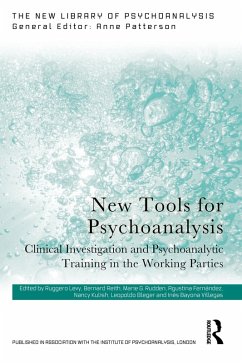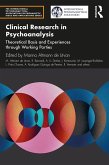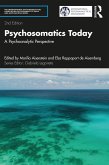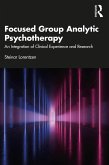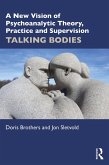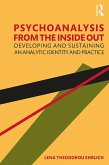The book opens with a discussion of the epistemology of research in psychoanalysis, then the various Working Parties describe their methodology and findings, and finally, in the last chapter, an assessment is made of what contributions this oxygenating movement has made to psychoanalysis. It examines topics including individual and group work, supervision, clinical interpretation, erotic transference and psychosomatics, and contains contributions from many distinguished analysts.
Providing a wealth of information on the place of research in evaluating new clinical methods and tools, this book is key reading for psychoanalysts both in practice and in training.
Dieser Download kann aus rechtlichen Gründen nur mit Rechnungsadresse in A, B, BG, CY, CZ, D, DK, EW, E, FIN, F, GR, HR, H, IRL, I, LT, L, LR, M, NL, PL, P, R, S, SLO, SK ausgeliefert werden.
Cláudio Laks Eizirik, former president of the IPA
'The Working Parties were and are the most courageous, innovative and creative experiment of mutual knowledge and theoretical-clinical fertilisation in the psychoanalytic community. By periodically confronting live clinical material provided by analysts from all over the world, groups of geographically and culturally heterogenous colleagues have been able to evolve individually and at the same time have contributed to substantial collective progress in our scientific field. This book, written by yesterday's and today's protagonists of this wonderful adventure, is absolutely recommendable as a fundamental text for understanding contemporary psychoanalysis.'
Stefano Bolognini, former president of the IPA, founder of the Inter-Regional Encyclopedic Dictionary of Psychoanalysis
'Twenty years ago, the European Psychoanalytic Federation initiated a series of working parties to study psychoanalysis psychoanalytically. They were to focus on psychoanalytic data such as case presentations and employ psychoanalytic methods such as free associative listening. The project has since been taken over by the International Psychoanalytic Association, has expanded around the world, and has become a dominant theme in the intellectual life of the profession. This volume, the creation of 31 leading psychoanalysts, presents a valuable summary of ten of these working parties and provides the foundation for the next stage of inquiry in psychoanalysis.'
Robert Michels, MD, Walsh McDermott University professor of Medicine and Psychiatry, Weill Cornell Medicine; president, Board of Directors, The Psychoanalytic Quarterly; former joint editor-in-chief, The International Journal of Psychoanalysis

